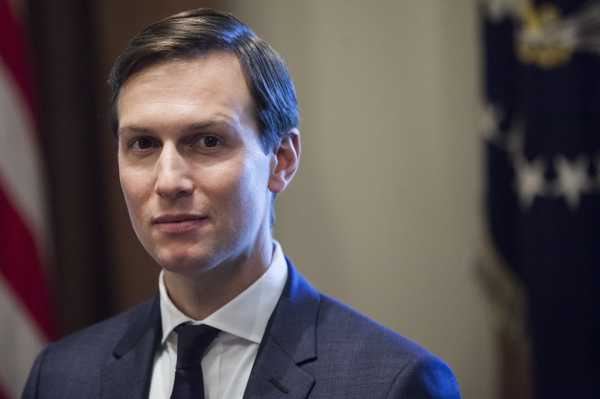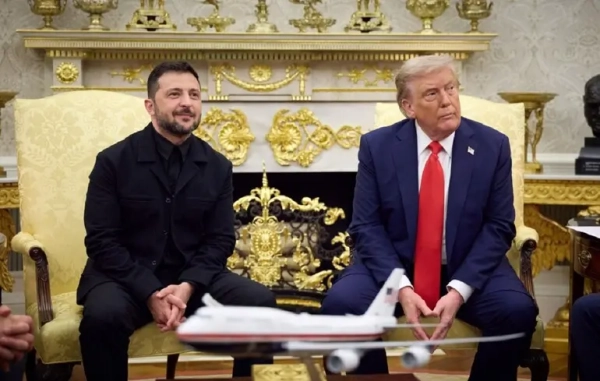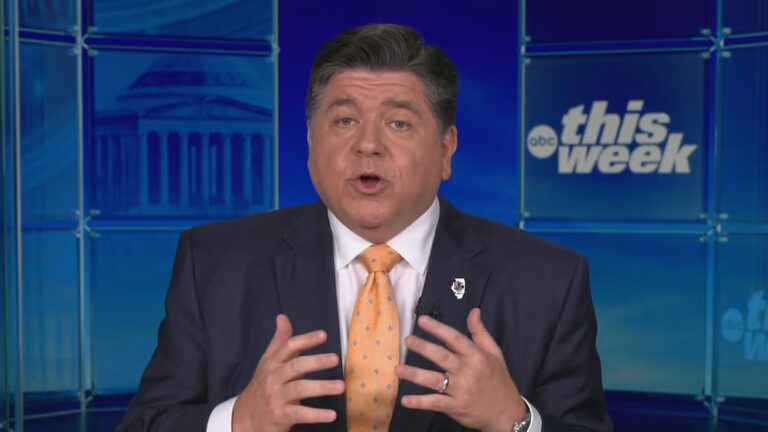
Questions have long been swirling on just how, exactly, President Donald Trump’s son-in-law Jared Kushner got approved for a top-secret security clearance last year, despite his many business conflicts and scandals.
A new report from the New York Times may provide the answer: Trump just ordered it, over the objections of his own chief of staff.
According to Times reporters Maggie Haberman, Michael Schmidt, Adam Goldman, and Annie Karni, Trump overruled “concerns flagged by intelligence officials,” White House counsel Don McGahn, and White House Chief of Staff John Kelly and ordered that Kushner get a clearance in May 2018.
Both Kelly and McGahn documented their objections in memos, the Times reports, with McGahn’s memos outlining concerns raised by the CIA. But the day after McGahn recommended to Trump that Kushner not get a clearance, Trump gave him one anyway.
It’s a serious scandal. Trump ordered his son-in-law be given access to top-secret information over the objections of not only career intelligence officials but also his own top White House appointees.
House Oversight Committee chair Elijah Cummings launched an investigation into the White House’s security clearance practices last month. The choice was notable: The Oversight Committee has broad jurisdiction, and this was the first investigation committee Democrats picked to announce out of many possibilities. Cummings sent a letter demanding documents about the clearance deliberations around several administration officials — including Kushner.
Kushner’s clearance woes were known for some time, but then they suddenly went away
Since Trump’s first day as president, his son-in-law has been with him in the White House as a senior adviser, and privy to all sorts of top-secret information. But for over a year, Kushner did this with a “temporary” or “interim” security clearance. This is common for new appointees so that they can start doing their work while their background checks proceed.
As of February 2018, however, Kushner still had not been approved. The exact reason for the holdup wasn’t known. It could involve his family real estate business: The New Yorker’s Adam Entous and Evan Osnos reported that US intelligence officials got information that Kushner had discussed his business interests with the Chinese ambassador in early 2017. And a Washington Post report revealed that Kushner had caused consternation by contacting foreign officials and not informing the National Security Council — and that foreign officials had discussed trying to gain influence over him through his business. The holdup could also involve the Mueller investigation.
The Kushner clearance matter became a prominent national issue last year due to a scandal involving another Trump staffer, White House staff secretary Rob Porter. Porter, too, had been doing his job for over a year with an interim clearance when news broke that two of his ex-wives had accused him of domestic abuse.
The Porter scandal led to increased scrutiny of the Trump White House’s handling of the clearance process. It seemed that top aides had previously looked the other way, in part because Kushner was one person affected.
In the wake of Porter’s resignation, Kelly, then chief of staff, imposed new rules that White House staffers still waiting for a full clearance could no longer handle top-secret information. Those rules went into effect at the end of February 2018, so Kushner lost his top secret privileges.
But in May 2018, Kushner’s clearance problems suddenly went away. The Washington Post reported that Kushner had been “granted a permanent security clearance to view top-secret material.” Citing a person familiar with the matter, the Post wrote that the clearance was “granted by career White House and intelligence officials after the completion of his FBI background check.” The reporters speculated that this could even be a sign that Kushner was no longer under Mueller’s scrutiny.
This was not, it seems, the full story.
Last month, NBC News reported that Kushner’s clearance had in fact been “rejected by two career White House security specialists after an FBI background check raised concerns about potential foreign influence on him.”
These two specialists, however, were overruled by their supervisor — Carl Kline, the director of the Executive Office of the President’s personnel security division. And now the Times reports that Kline was in fact acting at the behest of a “directive sent down by” President Trump, through John Kelly.
For more on the Mueller probe, follow Andrew Prokop on Twitter and check out Vox’s guide to the Trump-Russia investigation.
Sourse: vox.com






